3 Reasons That Will Make You Anxious About Online Privacy

Why is online privacy important? Your online profile is less an impression of you than an image. Whether you like it or not, businesses and open entertainers will in general trust the series of 1s and 0s that speak to you more than the story you let them know.
When filing a credit application at a bank or being recruited for a job, your social network, credit-card history, and postal address can be seen as changeless facts more credible than your opinion.
We as a whole have things to hide. It could be how a lot of cash you make, your medical records or your bank account number. Hiding things isn't awful.
I don't think these are the kinds of things you'd like communicated on your social network for the whole world to see.
This is the reason we should endeavor to secure our right to privacy. Earlier this year, a young lady bought a couple of ordinary things, for example, cotton balls, unscented moisturizer, and a few nutrients.
Based on what the organization definitely knew about her, they had the option to effectively predict that she was pregnant, and started focusing on her for baby items by sending her coupons via the mail.
The issue? She was a high school young lady, and these coupons alarmed her dad (a lot to his shock that she was in fact pregnant.)
The most significant thing to remember about your privacy is that it is yours. It is your information, your habits or patterns, and your activities. In this way, you should need to protect it in any way possible.
WHAT IS PRIVACY?
why your online privacy matters? Privacy is shutting your room curtains when preparing for bed. Privacy is chatting with your doctor behind closed doors.
While, in real life, this kind of privacy comes naturally, with little idea, in the digital space the possibility of privacy is unfair. The most part since individuals doesn't generally understand what digital privacy involves.
 |
| Image Credits: @ISACA's Risks And @Rewards Of Internet Things |
While, in real life, this kind of privacy comes naturally, with little idea, in the digital space the possibility of privacy is unfair. The most part since individuals doesn't generally understand what digital privacy involves.
But your online profile isn't constantly based on facts.
It is molded by Tech companies and sponsors who make strategic choices dependent on their conversion of data points: what films you decide to watch, the hour of the day you tweet, or how long you take to tap on a cat video.
Numerous choices that influence your life are presently directed by the understanding of your data profile rather than personal interactions.
What's more, it's not just about advertising banners influencing the brand of the soap you purchase—similar mechanics of profiling clients and focusing on messages apply to political campaigns and visa applications as much as grocery store extents.
When advertising seems as though news and news look like entertainment, a wide range of content is profiled based on your data.
So which type of story does your data tell about you?
WHAT EXACTLY ARE WE TRYING TO PROTECT?
People may accept it is about what they are doing, which is a little bit of the image. Nevertheless, online privacy has less to do with what you are doing, and more to do with what your identity is and what you are doing. On the Internet, data has a high worth.
It’s stolen, sold, gathered and analyzed. There are numerous reasons for privacy.
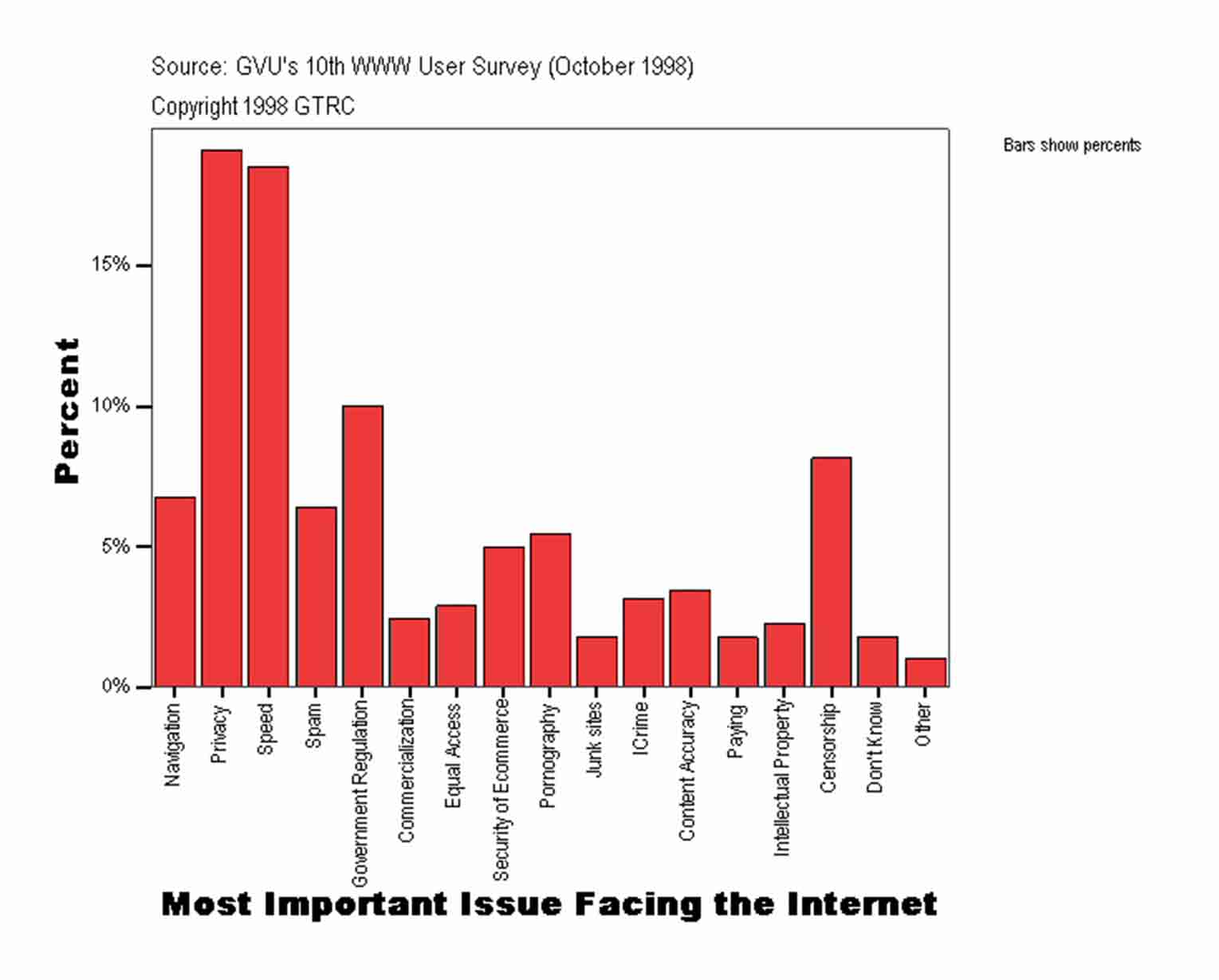
There’s what you do, and who you are. Who you are is your personally recognizable information (PII), which is as it sounds--your name, date of birth, address, Social Security number, phone numbers, and the sky is the limit from there.
What you do are the searches you perform, the sites you visit, the articles you read, even what you purchase online.
Whenever you download an application, visit a site or use a social media platform, chances are that businesses are gathering data on you. People are doing so much more online through their PCs and cell phones today.
We make purchases, look up medical conditions, arrange vacations, interact with friends and family members, pretty much anything possible. With these activities, individuals are unintentionally making massive data about themselves.
While it may not be PII, these companies still track what you do on the Web and gather that data in order to get a more clear image of you.
WHAT CAN BE DONE WITH MY DATA?
A total data set on an individual can get an amount of change, totally legitimately, as well. There are presently organizations known as "data brokers" that gather and keep up data on millions of people, which they investigate, bundle, and sell without the user’s knowledge or authorization.
Data brokers gather and sell information to different organizations for some, reasons, including targeted advertising, credit risk taxation, and direct marketing.
Fortunately, this data is normally anonymized and doesn't contain PII.
THE LAYER OF YOUR ONLINE PROFILE
It is pleasant to think that we have control over our online profile. After all, we’re the ones who feed terabytes of personal data into mobile applications and online platforms. We choose which photographs we need to share and which should stay private.
We accept or reject invitations, control tags, and think twice before publishing a post or a remark. We are critical and particular about the content we like or share. So is there any valid reason why we wouldn't be in charge?
The awful news is that when it goes to your digital profile, the data you decide to share is only the tip of an iceberg. We don't see the rest that is hidden under the water of the friendly interfaces of mobile applications and online services.
The most important data about us is derived outside our reach to control and without our consent.
It's these deeper layers we can't control that truly make the choices, not us. Let’s peel open this data onion.
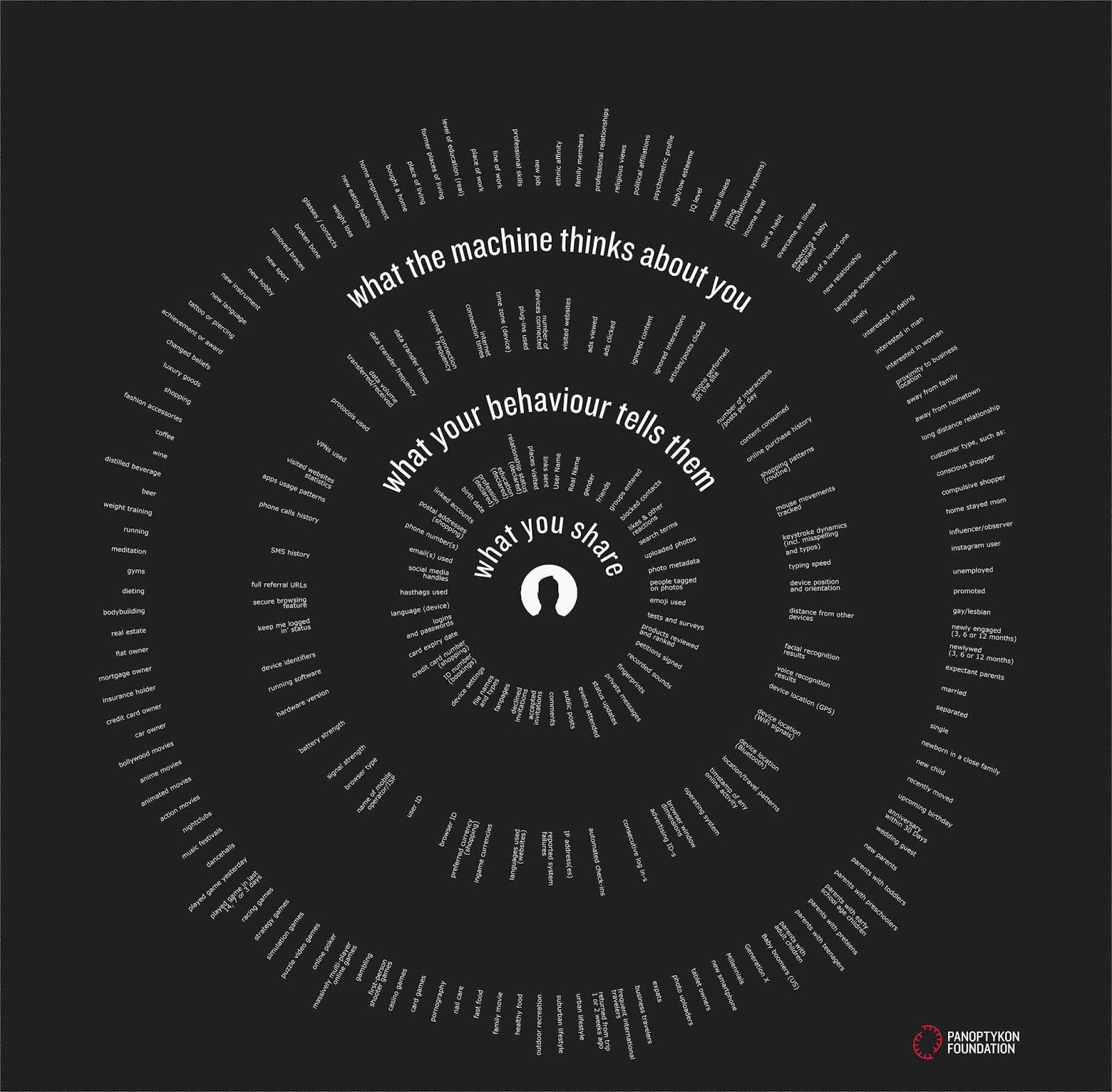 |
(View The Image In Full HD: Here.)
|
The first layer – you do control. It consists of data you feed into social media and mobile apps. It contains what you are showing in your profile about, posts and private messages, searched things, uploaded photos, reviews you are given, events you attended, websites you visited...
The second layer is made of behavioral observations. These are fewer decisions you consciously make, however, the metadata that offers a setting to those decisions.
It contains things that you most likely would prefer not to share with everyone, similar to your real-time location and a detailed understanding of your personal and expert connections.
(By seeing location patterns that uncover gadgets that frequently meet in similar places of business or “sleep” together in similar houses, tech companies can tell a ton regarding who you invest your time with.)
It similarly tracks you when you're online or offline, content you view, the time you spent reading it, shopping, typing speed, also actions of your fingers on the screen (which some businesses reveal emotions also numerous mental qualities).
The third layer is composed of understandings of the first and second. Your data are examined by numerous algorithms and compared with other users’ data for important statistical correlations. This layer gathers conclusions about what we are based on our behavior and metadata.
It is significantly more hard to control this layer, as, even though you can control the information sources (posting photographs of your newborn), you don't have the algorithm that is spitting the output (that you may need to order nappies).
The task of these profile-mapping calculations is to figure things that you are not likely to freely uncover. These contain your flaws, profile, IQ, family condition, habits, illnesses,
We’re about to separate or go in a new relationship, your obsessions (e.g. gaming), and your responsibilities (like business projects).
Those behavioral predictions and changes are truly significant for an advertiser. Since advertising is intended to make needs and drive you to make choices that you haven't made yet, advertisers will attempt to exploit your involuntary system with programmed responses.
Since they can't expect that you will tell them how to do this, they chase for behavioral data and utilize algorithms to discover important correlations in this chaos.
Binding decisions made via banks, insurers, employers, and public officers are made by large data and algorithms, not individuals. It saves a ton time and cash to take a look at data as opposed to talking with people, all.
Also, it appears to be more rational to put statistical links over a messy individual story.
Consequently, there's a common faith in the promoting business that enormous data doesn't lie—that statistical correlations tell "reality" about people, their conduct, and their inspirations.
But, isn't that right?
WHEN YOUR DATA DOUBLE IS WRONG
Interestingly, we as users probably won't care for or recognize ourselves in the profiles that are made for us. How might it feel?
if you found your "data double” is spoiled, not creditworthy, or not just not cool enough, all due to the way you type, your search queries, or any "weird" relationships you may have?
Your online Data Double may look not at all like your real-life one—yet the one the internet will treat you as.
Marketers do not care about you—they care about numbers. Algorithms make choices dependent on statistical correlations.
If you happen to not be a typical individual, indicating uncommon qualities, quite possibly an algorithm will get the wrong impression about your behavior.
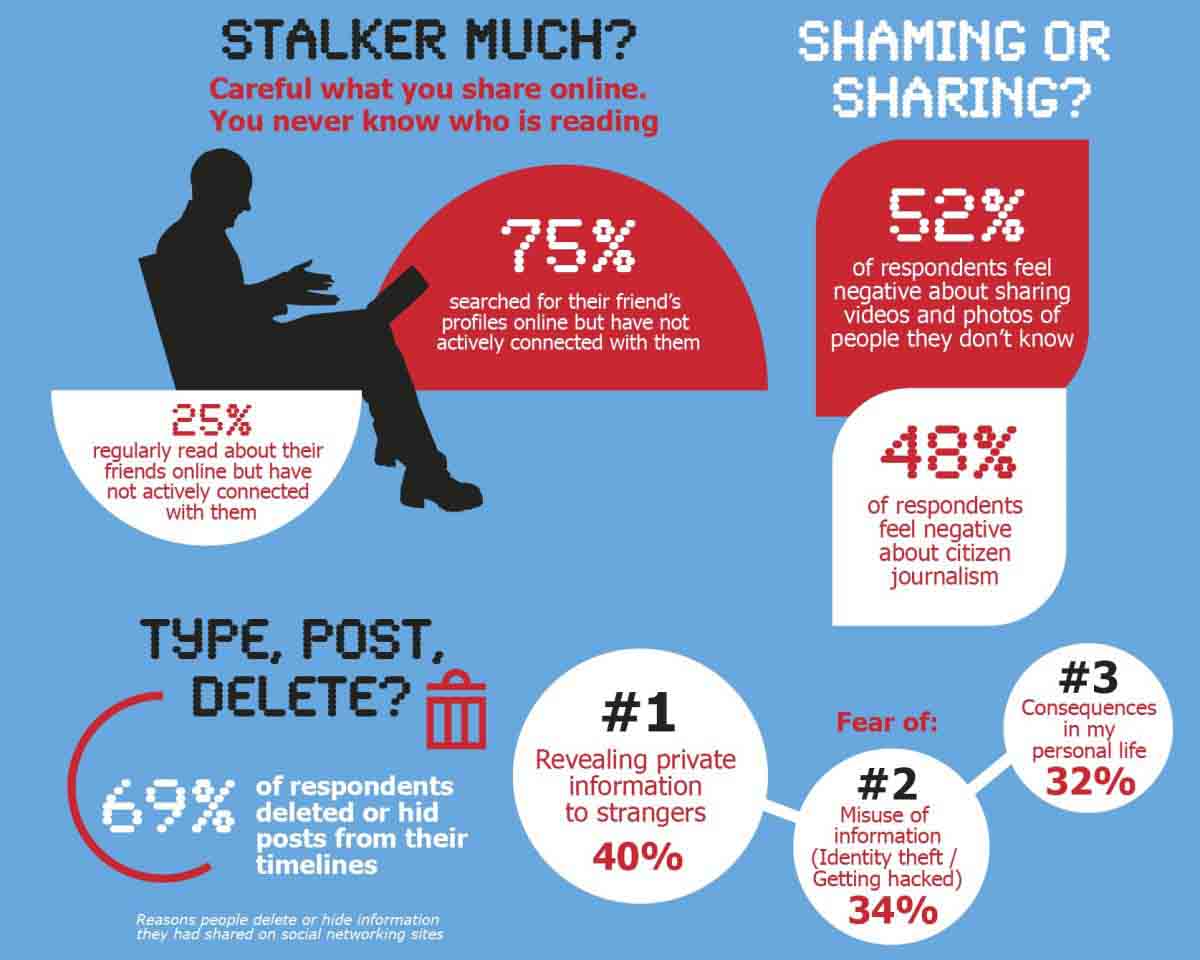 |
| Statistics of common social behaviors of peoples. |
It might make a slip-up concerning your business, your loan, or your right to cross the border. For whatever time that those statistical correlations stay genuine, no one will mind reconsidering this specific judgment. You’re a glitch.
On the off chance that the result of this algorithmic investigation is harmful or uncalled — for instance, your credit application is refused because you live in "an inappropriate" area,
Or your job application doesn't make it through because your social network isn't "sufficiently forceful"— there is no market force to correct it.
For what reason would they? You're a single data point in a wave of billions. Why make a special case in the system just for you?
We would already be able to see this playing out in China. As a major aspect of their "social credit score" system, each citizen is positioned on expert and personal communications, online activity, and public appearances.
Neglect to pay a parking ticket? Look into prohibited topics online? Your activities have lasting impacts, for example, your ability to purchase train tickets or send your children to great schools.
Scoring systems in the West spot a similar visually reduced trust in huge data, ignoring the specificity and uniqueness of individual cases. We can shake our heads at the craziness of China's social credit score all we like—yet
is it accurate to say that we are actually that far away from ourselves?
THE REAL DIGITAL, YOU PLEASE STAND UP!
We should get back, control of our digital shadows. In the event that we don't, we'll keep on being inaccurately and unreasonably punished in our lives, both online and off.
You can take action to control the first layer of your online profile. Even though we are regularly careless or unstructured with the data we share, we have the tools to control this procedure. We can decide not to post notices or like pages.
We don’t have to use messaging systems set on social media platforms. We can encrypt our private communication by picking certain messaging apps and block tracking scripts by installing simple plug-ins.
 |
| This Year Online Privacy Growth And Awareness Effect |
We can even switch off metadata being stored in our photos by changing the default settings on our phones and ensuring that they don't approach our locations.
But even if we make that effort, we can't control what is watched and decoded by algorithms. The second and third layers of our profiles will keep on being produced by machines.
The best way to recover full control over our profiles is to convince those who do the profiling to change their approach. Rather than hiding this data from us, they could turn out to be more straightforward.
Rather than guessing our locations, relations, or hidden desires behind our backs, they could ask questions and respect our answers.
Rather than control, we should have a discussion. Imagine that as opposed to having data brokers think about what your identity is, you could simply let them know.
Sharing genuine information would help make your online experience (and any offline effects) more exact.
Sounds too radical or naive? Not so much. European law as of now requires organizations that take part in tracking and profiling to make it more transparent.
The data security guideline GDPR that was set up in May 2018 gives European clients the rights to confirm their data,
Counting advertising profiles created by data brokers, internet platforms, or online media. While organizations can,
In any case, ensure their code and algorithms as business secrets, they can never again hide personal data they create about their users.
GDPR and its logic give clients a good starting point for arranging the new power balance in the data-driven industry. In any case, what will make further dealings possible in the future is building trust?
For whatever time that we treat data brokers and advertisers as an enemy and they treat us as usable assets, there is no space for open discussion.
It is, therefore, time to regard clients as active users, not passive members. With GDPR in force and new organizations assembling their upper hand on trust and transparency, new models of promoting and financing online content become reasonable.
Arrangements that appear to be illogical and dangerous may end up being the most characteristic path forward: Instead of telling users what their identity is, is listening to what they say.
USE THESE 17 PIECES OF ADVICE TO PROTECT YOUR PRIVACY
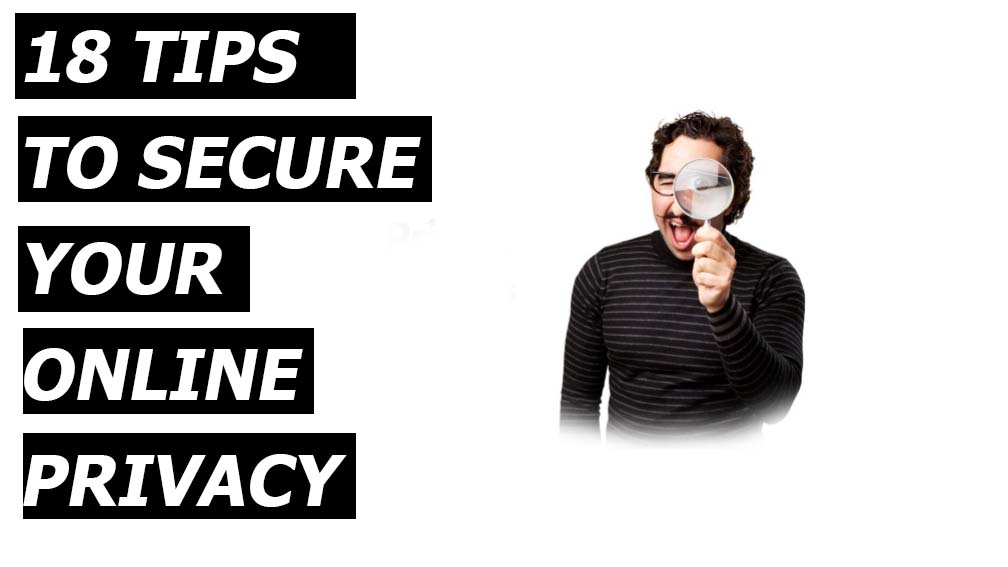 |
| 17 PIECES OF ADVICE TO PROTECT YOUR PRIVACY |
If you are reading this, you are on the Internet. As are several million around the world at the present time. The Internet has delivered mind-boggling suitability and a fortune valuable discovery of information.
It has become such a focal part of regular daily existence that the vast majority don't understand the amount they rely upon it.
However, you can't see the Internet's favorable circumstances without looking at the setting of grave dangers.
Maybe none is more noteworthy than the risk to personal privacy and the danger that appears if private data makes its way under the control of criminals.
Online privacy is a hot-button issue that has prompted the expansion of privacy laws, for example, the EU's General Data Protection Regulation (GDPR).
However, while privacy laws reason the misuse of private data, they do little to fix the harm after a breach happened. In protecting online privacy and keeping up your anonymity, the moves you make are unmistakably more significant than any lawful system that could be set up.
Here are some handy 18 tips to guarantee your personal data stays safe from the businesses, governments, and criminals that would need to get to it without your authorization.
- #1 Secure Your Passwords
Passwords are the keys to our digital lives. Cybercriminals apply numerous strategies to attempt to break them. To make this assignment hard for them, apply solid, confusing passwords.
A decent password should be at least eight characters in length, and utilize a blend of capitalized and lowercase letters, numbers and symbols.
Try not to use full words, names, addresses, phone numbers or some other easily recognizable personal information. Be sure to avoid using the same password over different sites.
Two-Factor Authentication (2FA), if accessible, is another method for confirming your identity other than only a username and password.
2FA has contained something you know, (for example, a password), something you have (a cell phone that code can be sent to), or something you are (such as a fingerprint).
Never save passwords on your gadget. Indeed, it's advantageous. Truly, it saves time. But if you have to securely store passwords, investigate a safe password manager.
Criminals are getting smarter and need only one chink in the protective layer to get into the system to rob you of a shock.
All the attempts you put toward keeping your personal information off the Internet or safe from unapproved access would come to nothing if your online accounts aren't secured by a strong password.
One of the primary things somebody purposes on hacking your account will do is attempt to figure your password or break it via a brute force attack.
In this way, the stronger your password, the harder it will be for an attacker to break it. By no means – your password has personal information, for example, your introduction to the world date, physical address, high school name, college name, or mother's name.
- #2 Be Conscious Of All Privacy Settings
Most applications offer privacy settings for users. This gives you the opportunity to know how much and what sort of information is shared.
Always choose the least amount of data sharing. Always be careful when sharing your name and location.
Turn-off location also denies access to your mobile camera. When it comes to social media, make certain to review your privacy settings. Most social media sites will give you options to choose who you are sharing your information with.
Be certain those settings are set for reliable peoples and friends, instead of set to public for the entire world to see. You can check your privacy settings on popular sites via the Data Privacy Day site.
- #3 Be Aware Of Your Digital Footprint
Whatever you post online is there forever, regardless of whether you erase. it from where it was initially posted. A digital footprint – is somewhat of a digital trail. Forum registration, recordings, photographs, pretty much anything you post will all leave traces of information about yourself online.
- #4 Get Trustworthy Security For Your Devices
In addition to protecting your PC from malware, good security software programs these will shield you from different dangers on the Internet.
There are as yet numerous vulnerabilities out there, for example, phishing, spyware, cheat sites, adware, keyloggers and that's just the beginning.
There are as yet numerous vulnerabilities out there, for example, phishing, spyware, cheat sites, adware, keyloggers and that's just the beginning.
Remember: Phones need as a lot of security as some other device, if not more. Numerous security providers offer free services.
These can be hazardous as they mine data from your phone. Always go for a well-known service provider. Use some reliable Mobile Security application that has an extent of features – can shield your phone from most dangers.
- #5 Back Up Your Data
Backing up data is regularly ignored. However, it is a significant part of data assurance. Ransomware is an attack – where hackers grasp your data for money.
There are cloud-based services that offer backup. Or on the other hand, you can choose Premium Anti Viruses, which incorporates data backup feature.
- #6 Anti-Theft Your Device
On the off chance that your device is lost or taken, tracking applications will assist you with discovering it. But how would you ensure your off the record?
In 2016, the number of mobile Internet users broke the work area just because. Given the suitability, growing computing power, and affordability of smartphones, what's to come is clearly mobile.
The average person spends several hours every week on their phone browsing the web, reacting to emails/messages, making up time with friends on social media, watching videos, or playing games. It’s therefore important that you give us a lot of concern.
For this layer of protection, It starts with protecting the phone with a password or pattern lock. It might feel like a task needed to enter it each time you need to access the phone
Yet it is a critical layer of protection if your phone is taken, lost or falls under the control of somebody who's interest shows signs of improvement of them.
Yet it is a critical layer of protection if your phone is taken, lost or falls under the control of somebody who's interest shows signs of improvement of them.
A second privacy safety measure for mobile is to just download applications from genuine stores, (for example, Google Play Store and the iOS App Store).
Applications on these stores need to pass a thorough security check before they are made available to end-users.
Applications on these stores need to pass a thorough security check before they are made available to end-users.
- Also Read: Mi Note10 Mobile With 108mp Penta Camera!
On the off chance that you download applications from third-party sites, you risk presenting hurtful spyware onto your mobile device.
Third, enable remote cleaning (or install an application if your phone doesn't have the usefulness). That way, if the phone is taken or lost, you can clean it off of every single personal data. Anyone who goes over it can't get to this sensitive information.
Disable lock screen alarms. It would overcome your privacy goals if you somehow managed to have a password on your phone but still allow screen notifications.
- #7 Be Careful What You Do With Your Phone
While being careful of what you do with your phone is constantly suggested, it can get deadly. With the tremendous amount of malware, Trojans, and worms finding sneaky approaches to get into your gadget, it is smarter to stay protected with a security system that takes every necessary step for you.
Application Advisor is a superior feature given by Some Mobile Security Apps/Software. It prompts privacy dangers, nosy behavior of applications, unnecessary battery drainage, and data plan utilization.
It additionally has call/SMS blocking, anti-theft, contacts backup and shields your mobile phone from malware.
- #8 Watch Out For Bluetooth Vulnerabilities
Bluetooth technology offers unbelievable comfort. It likewise opens entryways for security weaknesses. Make sure you turn off your Bluetooth when you are not utilizing it.
While there are options to put your Bluetooth activity in an invisible or undetectable mode, there are some malicious apps that can change that mode and open your gadget to dangers.
That is one more reason to have a security system setup.
- #9 Keep Your Operating System Up To Date
Apps Update plays out a bundle of tasks. They are accessible for both our operating systems and individual software programs.
Playing out these updates will convey a huge number of corrections to your PC, for example, including new features, expelling out-of-date features, refreshing drivers, conveying bug fixes, and above all, fixing security openings that have been found.
Playing out these updates will convey a huge number of corrections to your PC, for example, including new features, expelling out-of-date features, refreshing drivers, conveying bug fixes, and above all, fixing security openings that have been found.
- #10 Wise Up To Wi-Fi
Secure your home network. Change the default username and password on anything that associates with your network, especially your Internet router. Utilize Wi-Fi Protected Access (WPA) – This will encrypt data over your network.
Turn on all firewalls on both equipment and software programs. While most home Wi-Fi connections are encrypted, some open Wi-Fi connections are not – and it’s not safe at all!
- #11 Delete Data That You No Longer Use
In the event that you haven't utilized a program in months-uninstall it. If you have a lot of old documents that you don't get to anymore, you can erase those also, or store them into a disconnected an external hard drive.
These can be storehouses of personal information that you may have forgotten about. If you haven't utilized a program in some time, odds are it is out-of-date.
These can be storehouses of personal information that you may have forgotten about. If you haven't utilized a program in some time, odds are it is out-of-date.
- #12 Familiarize Yourself With Phishing
Phishers normally attempt to copy well-known companies, such as banks or educational institutions, To get user credentials or convey malware to your PC via doubtful links or attachments in email.
Never click on attachments or links from unknown senders or from suspicious-looking messages.
Rather, you think your account is in risk, go directly to the site being referred to by typing the address into the URL bar in your browser rather than clicking the link in the message.
- #13 Avoid Oversharing (Especially On Social Media)
You wouldn't begin shouting your most personal mysteries before a crowd of outsiders. However, an astonishing number of individuals neglect to practice relative limitations on the overall web. The online crowd is far bigger than any crowd that could be collected.
Social media is an especially notorious conduit for unwantedly revealing personal information. Regardless of whether it's keeping friends up to speed with our life achievements or
It's simply the vanity posting on Instagram catching your most breathtaking minutes, the more information you share online, the more prominent the hazard that your personal information could be mishandled.
It's simply the vanity posting on Instagram catching your most breathtaking minutes, the more information you share online, the more prominent the hazard that your personal information could be mishandled.
In protecting online privacy, start by dismissing the 'about me' areas of your social networking accounts. It's a bit much for the world to know your date of birth, physical address, phone number, email address, institute from you studied, or where you work.
After all, the individuals who need to know this information about you, as of now have it through your offline interactions. You could go further and restrict who can see your posts.
- #14 Turn On Private Or Incognito Browsing Mode
Browsing in private or incognito mode is the aim of jokes thanks to the belief that it's generally ordinary among people keen on browsing porn sites without leaving a path.
This is an incredible exhibition of how powerful browsing incognito can be as a weapon for protecting online privacy.
This is an incredible exhibition of how powerful browsing incognito can be as a weapon for protecting online privacy.
The browser deletes your trail once you close the tab or window. For whatever time that you explore the web in this mode, any individual who gets to your PC, tablet, or smartphone won't see your browsing history, cookies, or temporary Internet files.
That being said, private/incognito mode has a few weaknesses. For example, your Internet service provider can still see your browsing activity. The sites you visit can likewise monitor your online activities.
Still, there’s no damage in utilizing it as one of the various devices available to you that increases your anonymity online and protects your privacy.
- #15 Use A Virtual Private Network (VPN)
A VPN makes a private encrypted tunnel of communication on a public Internet connection. It improves your anonymity and privacy by masking your IP address thus making it difficult for anybody to credit an online activity to you.
Using a VPN is particularly helpful when you are browsing the web on open WIFI, for example, at a coffee shop, library, shopping center, or airport.
There are various VPN solutions available in the market. They go from the free to the ones that come at a premium. The VPN item that is most perfect will rely upon your spending limit, how respectable the merchant is, and the degree of privacy you need.
- #16 Don’t Click On Any Link (Except Authentic Once)
Phishing is one of the oldest and best methods for acquiring classified information without express approval.
The attacker attempts to mislead a person into sharing sensitive personal or business information. They do this by sending emails that appear to start from real sources, for example, a bank, instructive institutional, government agency, or one’s employer.
These emails will encourage the receiver to urgently click on a link and confirm certain classified information, (for example, passwords, credit card numbers,
Or social security numbers) on the off chance that they don't need their system authorization revoked or their bank or credit card frozen.
Or social security numbers) on the off chance that they don't need their system authorization revoked or their bank or credit card frozen.
By falling for this stunt, you'll be transferring the data directly to the attacker.
Yet, sharing your personal information isn't the main risk you are presented to on the off chance that you click on these cheat links. You could download malware onto your gadget or land on a virus-infected webpage.
To abstain from clicking a fake link, move your cursor over it and see the genuine name of the destination URL. If the same as that of the organization the email claims to begin from, do not click on it.
- Also Read: Tech Facts You Will Be Shock To Know!
Further, no trustworthy organization will request your password or credit card number using an email. If all else fails, connect with the institution directly via their official phone and email contacts (not the ones on the email). As usual, it's smarter to be safe than sorry.
- #17 Protecting Online Privacy Via Google Alerts
The overall web is a tremendous space with billions of website pages. It's inconceivable for anybody to physically screen this enormous virtual universe for instances where their privacy and anonymity may be in harm's way.
Luckily, Google Alerts can do the legwork for you.
You should simply set up alarms for your name and characterize how as often as possible the alerts should be sent to you (if you aren’t a prominent person, weekly or monthly should work).
With that, you'll know rapidly whenever your name comes up in the conversation somewhere on the Internet.
CONCLUSION ON ONLINE PRIVACY
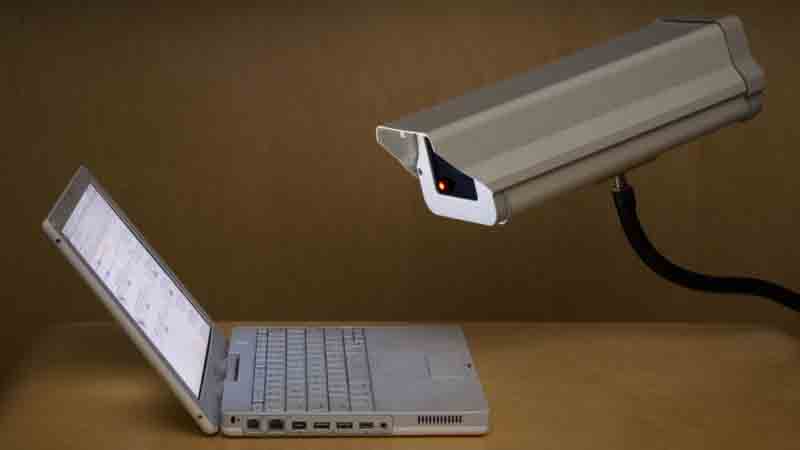 |
| Hiding things isn't awful in Online Privacy |
We as a whole have things to hide. It could be how a lot of cash you make, your medical records or your bank account number. Hiding things isn't awful in Online Privacy.
I don't think these are the kinds of things you'd like communicated on your social network for the entire world to see.
Huge data breaks, advertisers stalking you, and doubtful characters downloading photographs you share on social networks are only instances of the privacy hazards the normal Internet user is confronted with every day.
Luckily, you can take care of protecting online privacy. By applying these 17 tips (given in the article) – to get greater control of your personal data online and can all the more likely ensure your privacy on the web.
So which type of story does your data tell about you? Are you using any security measure in your online life? Comment your answers below!

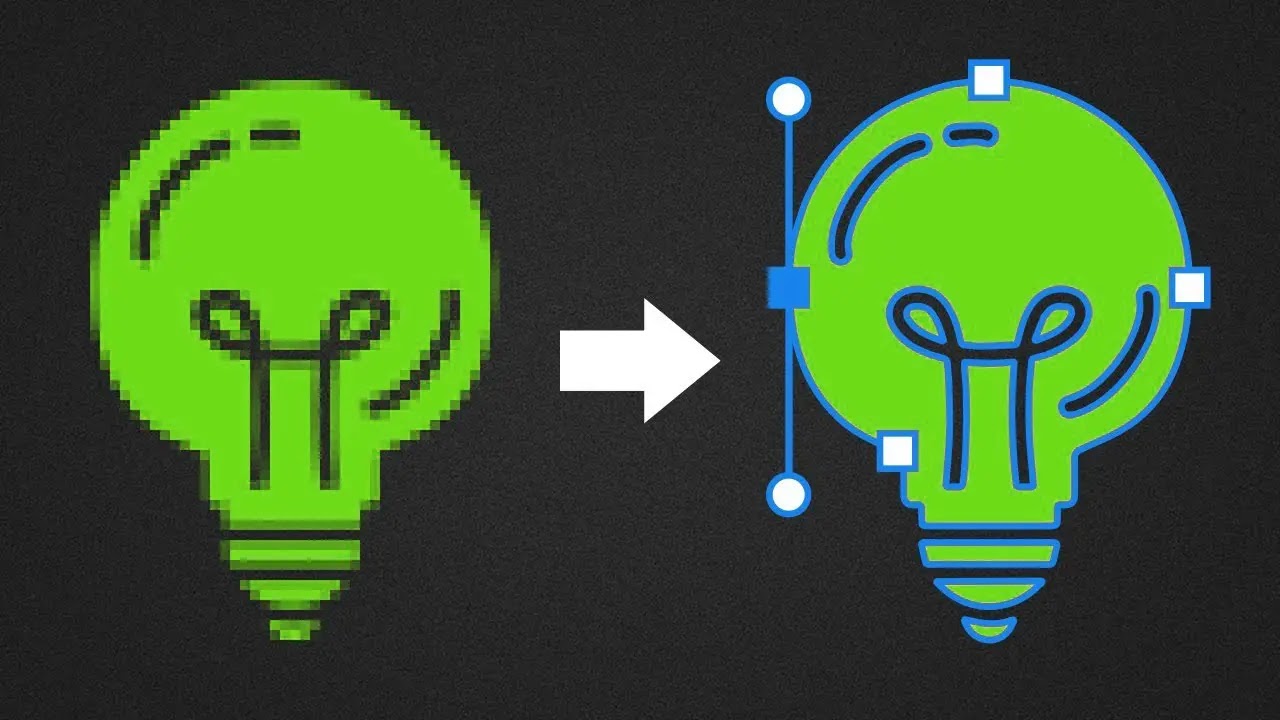



![Microsoft All In One App Out Now! [Download Link]](https://blogger.googleusercontent.com/img/b/R29vZ2xl/AVvXsEjCvr2abWBSOGGuor1TDujjOinz955lWrv9r9DTODl34TFpdX67fG7tN5i1632u5IVgBAqIKGSLnjzBgDqnOkkoU9o-pNZV7ta9iV-4NjVLi6FP0dpVjWYHXbRI18WQcMY6WLeOGnhJVPA/s72-c/microsoft-office-ios-preview-setup.png)


